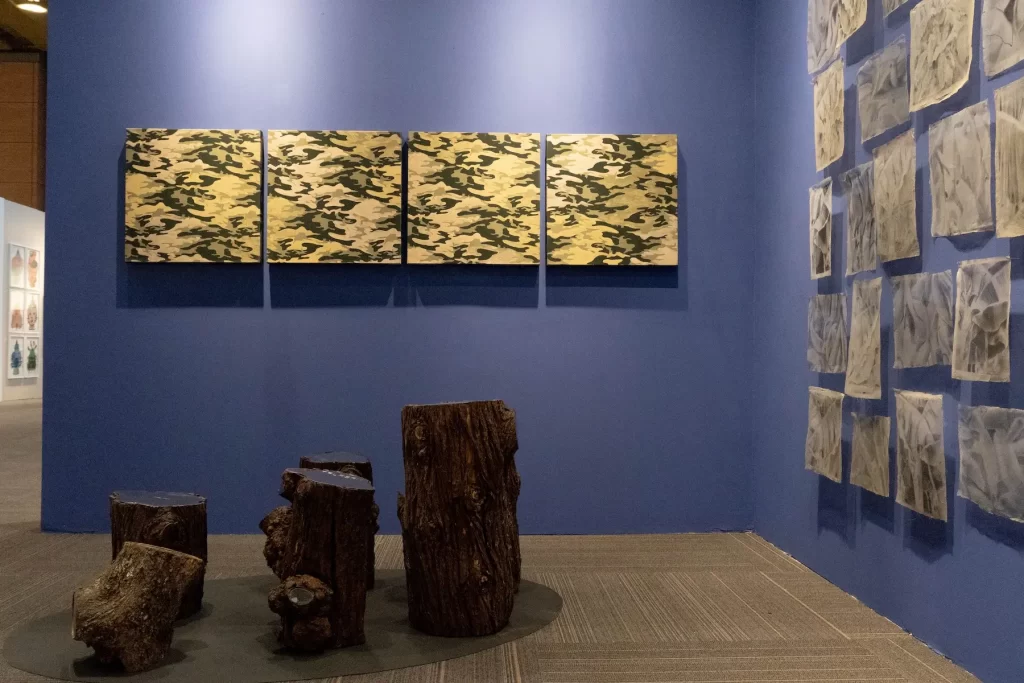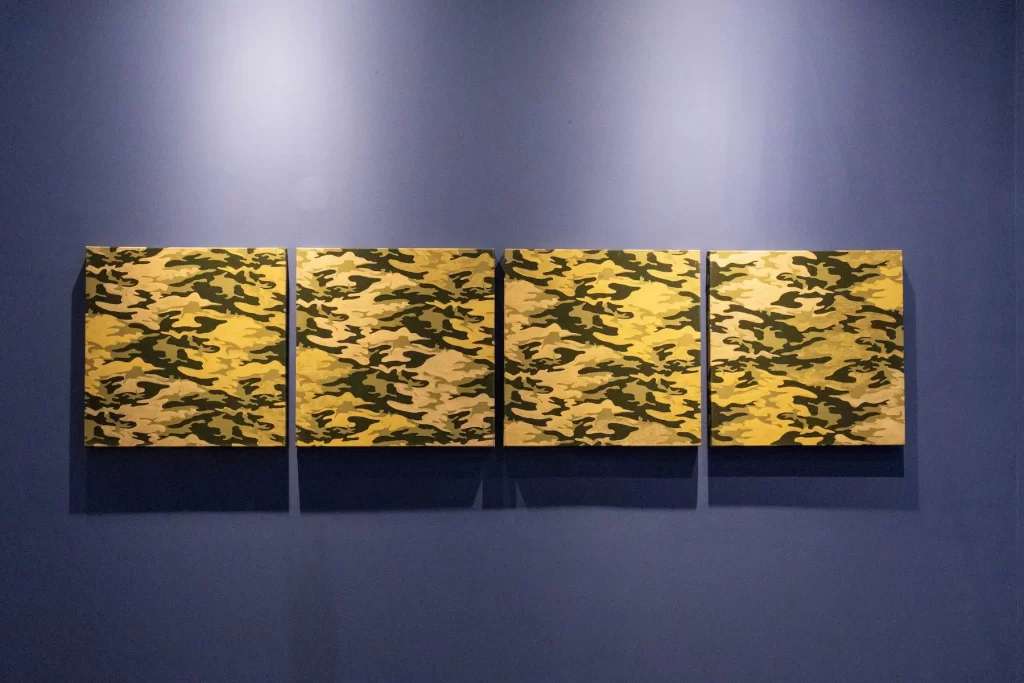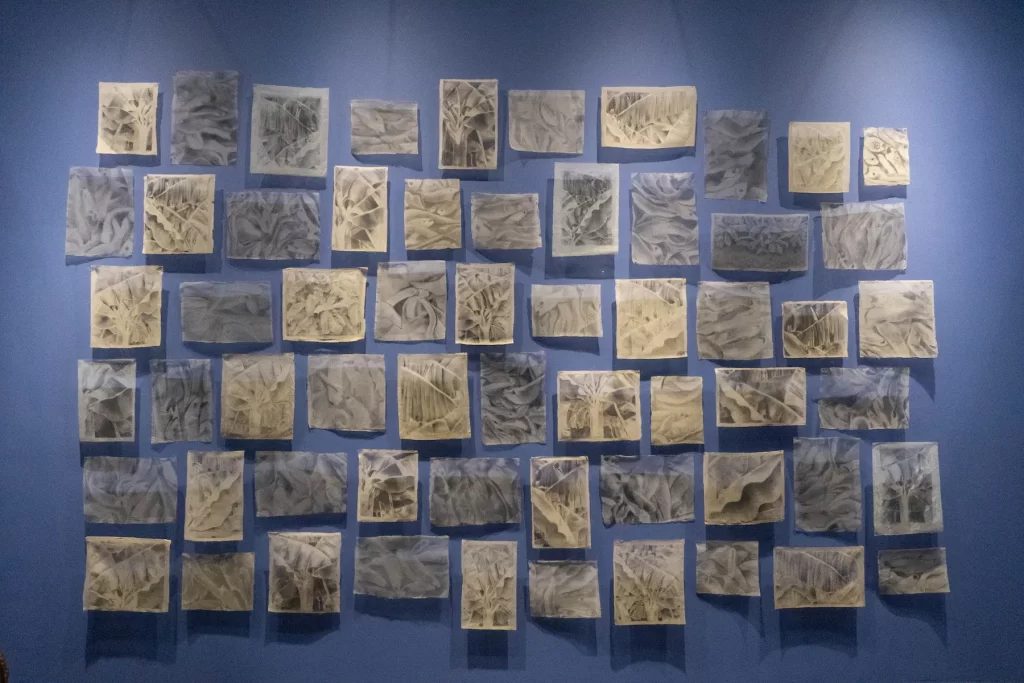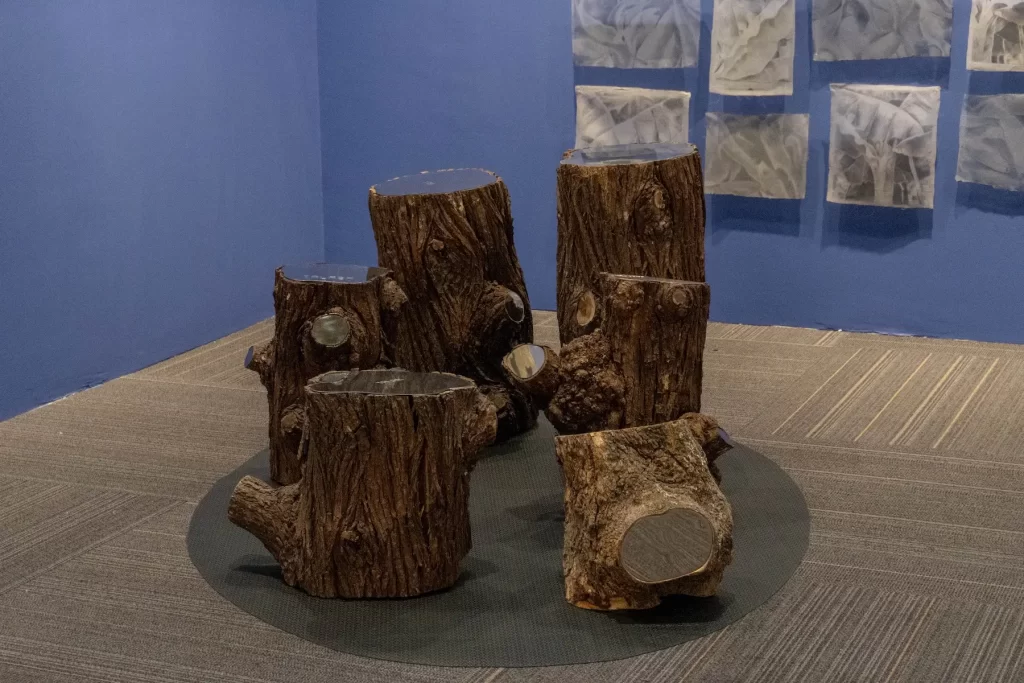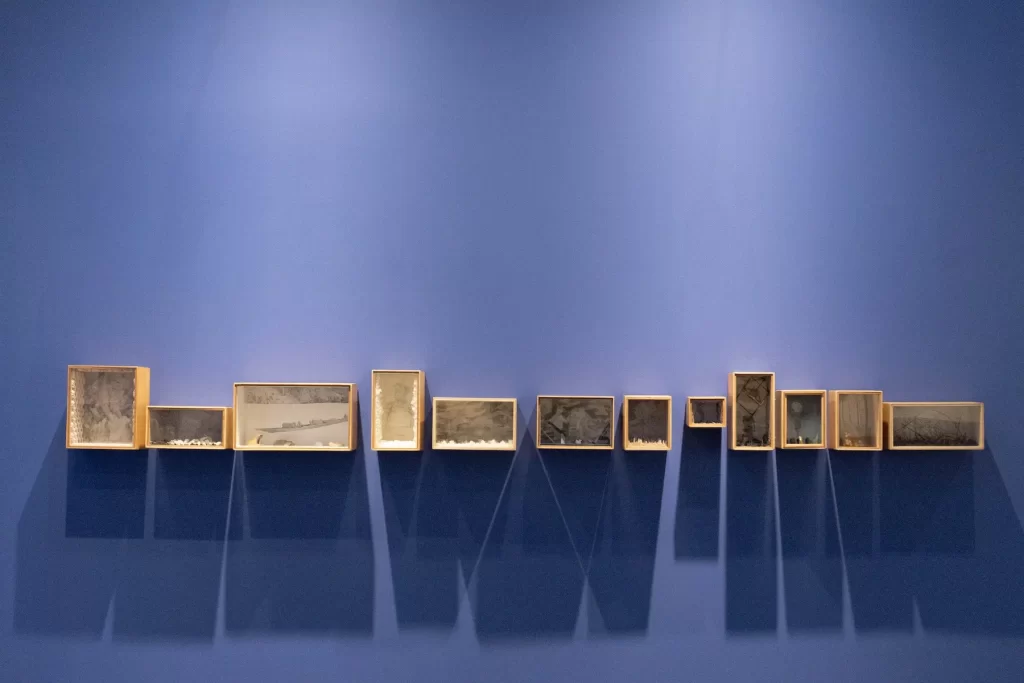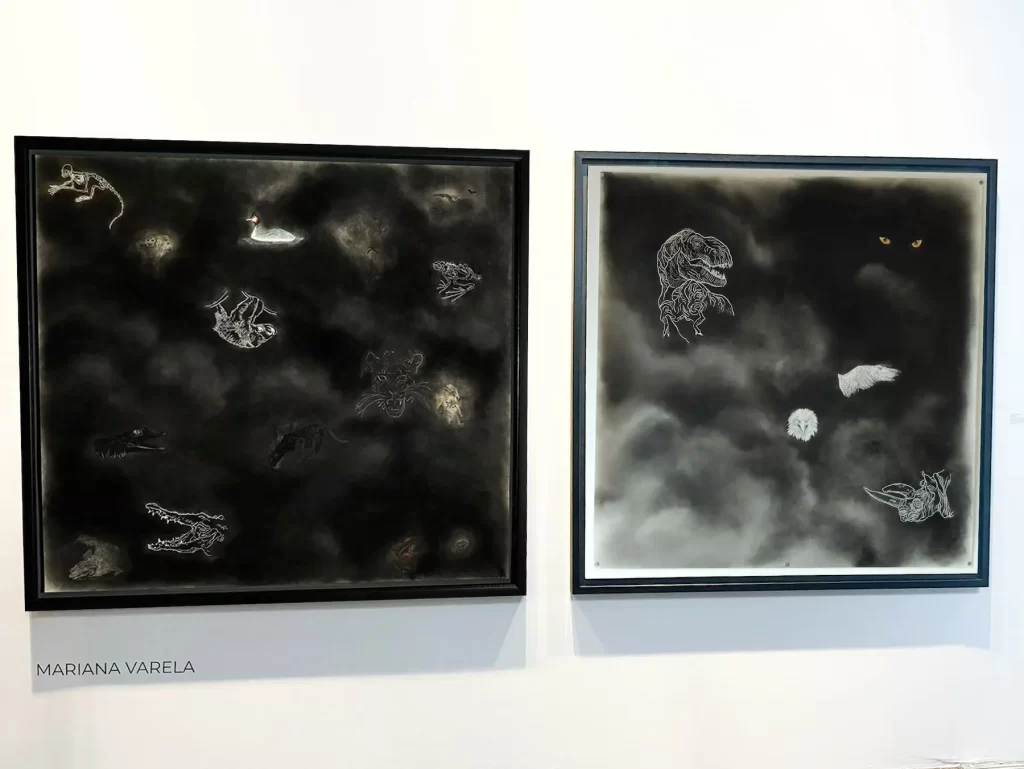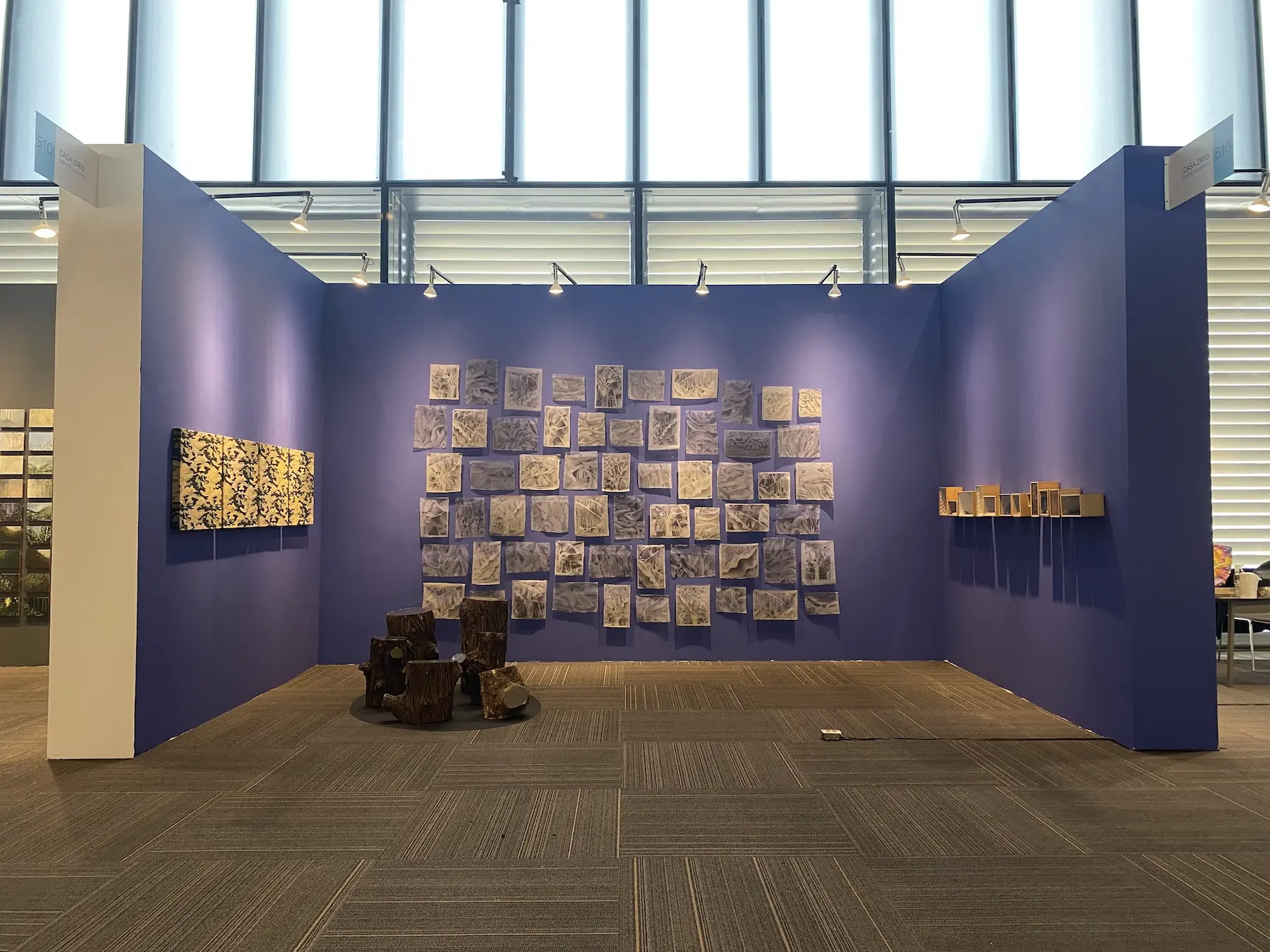
The powerful narrative woven into the local histories of contemporary Colombian artists Mariana Varela and Mario Vélez unfolds in the intricate spectrum of territorial behaviors. In the work of both artists, landscape as territory is revealed as necessary to explore the resonances between place and memory.
With her series Inextricable, Varela creates drawings of banana plants in oil on silk veils. The deconstruction of this plant is a study that unravels its complexities, revealing the tensions and ambiguities of a lawless territory. Another of the works presented at ArtBo is titled Contained Reality, in which Varela creates a series of small boxes that reveal moments of contemporary Colombian history. The consequences of the armed conflict on the civilian population, nature, and fauna are recreated through meticulous drawings in the background of these shadowboxes, which she complements with three-dimensional objects in clay, wood, or plant-based material. In the drawings Aún and In Extremis, Varela addresses the idea that, although we often describe ourselves as part of nature, our actions throughout history prove otherwise.
Her work seeks to raise awareness of the urgent need to rethink our relationship with nature, promoting a change in our attitude and commitment to the environment we have shaped and transformed. In dialogue with her work is the oeuvre of Mario Vélez with his paintings from the series Memorias de Bosque/Volver de la Guerra, entitled Consecuencias Irreversibles (Irreversible Consequences).
In this series of paintings, we can observe the abstraction of the landscape where it is translated into camouflage patterns and is inspired by the tones of the leaves of the tropical Andean Forest of the Antioquian mountains, using natural pigments such as the sands of the rivers where the armed conflict has been fought. In his pieces, Libres Acentos Vélezcreates a series of sculptures, constructing a forest of tree trunks on whose surface lie mirrors with inscriptions of different conjugations of the word log, such as logging or to log, which translates into a reflection of the transformation of the landscape by the perpetrators of the war.

